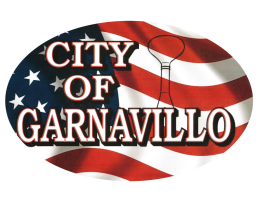CHAPTER 15 MAYOR
15.01 TERM OF OFFICE. The Mayor is elected for a term of four (4) years. (Code of Iowa, Sec. 376.2)
15.02 POWERS AND DUTIES. The powers and duties of the Mayor are as follows:
15.05 VOTING. The Mayor is not a member of the Council and shall not vote as a member of the Council. (Code of Iowa, Sec. 372.4)
15.02 POWERS AND DUTIES. The powers and duties of the Mayor are as follows:
- Chief Executive Officer. Act as the chief executive officer of the City and presiding officer of the Council, supervise all departments of the City, give direction to department heads concerning the functions of the departments, and have the power to examine all functions of the municipal departments, their records and to call for special reports from department heads at any time. (Code of Iowa, Sec. 372.14[1])
- Proclamation of Emergency. Have authority to take command of the police and govern the City by proclamation, upon making a determination that a time of emergency or public danger exists. Within the City limits, the Mayor has all the powers conferred upon the Sheriff to suppress disorders. (Code of Iowa, Sec. 372.14[2])
- Special Meetings. Call special meetings of the Council when the Mayor deems such meetings necessary to the interests of the City. (Code of Iowa, Sec. 372.14[1])
- Mayor’s Veto. Sign, veto or take no action on an ordinance, amendment or resolution passed by the Council. The Mayor may veto an ordinance, amendment or resolution within 14 days after passage. The Mayor shall explain the reasons for the veto in a written message to the Council at the time of the veto. (Code of Iowa, Sec. 380.5 & 380.6[2])
- Reports to Council. Make such oral or written reports to the Council as required. These reports shall concern municipal affairs generally, the municipal departments, and recommendations suitable for Council action.
- Negotiations. Represent the City in all negotiations properly entered into in accordance with law or ordinance. The Mayor shall not represent the City where this duty is specifically delegated to another officer by law, ordinance, or Council direction.
- Contracts. Whenever authorized by the Council, sign contracts on behalf of the City.
- Professional Services. Upon order of the Council, secure for the City such specialized and professional services not already available to the City. In executing the order of the Council, the Mayor shall act in accordance with the Code of Ordinances and the laws of the State.
- Licenses and Permits. Sign all licenses and permits which have been granted by the Council, except those designated by law or ordinance to be issued by another municipal officer.
- Nuisances. Issue written order for removal, at public expense, any nuisance for which no person can be found responsible and liable.
- Absentee Officer. Make appropriate provision that duties of any absentee officer be carried on during such absence.
- Mayor Pro Tem
- Police Chief
- Library Board of Trustees
- Zoning Board of Adjustment
15.05 VOTING. The Mayor is not a member of the Council and shall not vote as a member of the Council. (Code of Iowa, Sec. 372.4)
CHAPTER 16 MAYOR PRO TEM
16.01 VICE PRESIDENT OF COUNCIL. The Mayor shall appoint a member of the Council as Mayor Pro Tem, who shall serve as vice president of the Council. (Code of Iowa, Sec. 372.14[3])
16.02 POWERS AND DUTIES. Except for the limitations otherwise provided herein, the Mayor Pro Tem shall perform the duties of the Mayor in cases of absence or inability of the Mayor to perform such duties. In the exercise of the duties of the office the Mayor Pro Tem shall not have power to appoint, employ, or discharge from employment officers or employees that the Mayor has the power to appoint, employ, or discharge without the approval of the Council. (Code of Iowa, Sec. 372.14[3])
16.03 VOTING RIGHTS. The Mayor Pro Tem shall have the right to vote as a member of the Council. (Code of Iowa, Sec. 372.14[3])
16.04 COMPENSATION. If the Mayor Pro Tem performs the duties of the Mayor during the Mayor’s absence or disability for a continuous period of fifteen (15) days or more, the Mayor Pro Tem may be paid for that period the compensation as determined by the Council, based upon the Mayor Pro Tem’s performance of the Mayor’s duties and upon the compensation of the Mayor. (Code of Iowa, Sec. 372.13[8])
16.02 POWERS AND DUTIES. Except for the limitations otherwise provided herein, the Mayor Pro Tem shall perform the duties of the Mayor in cases of absence or inability of the Mayor to perform such duties. In the exercise of the duties of the office the Mayor Pro Tem shall not have power to appoint, employ, or discharge from employment officers or employees that the Mayor has the power to appoint, employ, or discharge without the approval of the Council. (Code of Iowa, Sec. 372.14[3])
16.03 VOTING RIGHTS. The Mayor Pro Tem shall have the right to vote as a member of the Council. (Code of Iowa, Sec. 372.14[3])
16.04 COMPENSATION. If the Mayor Pro Tem performs the duties of the Mayor during the Mayor’s absence or disability for a continuous period of fifteen (15) days or more, the Mayor Pro Tem may be paid for that period the compensation as determined by the Council, based upon the Mayor Pro Tem’s performance of the Mayor’s duties and upon the compensation of the Mayor. (Code of Iowa, Sec. 372.13[8])
CHAPTER 17 COUNCIL
17.01 NUMBER AND TERM OF COUNCIL. The Council consists of five (5) Council members elected at large for overlapping terms of four (4) years. (Code of Iowa, Sec. 372.4 & 376.2)
17.02 POWERS AND DUTIES. The powers and duties of the Council include, but are not limited to the following:
17.04 COUNCIL MEETINGS. Procedures for giving notice of meetings of the Council and other provisions regarding the conduct of Council meetings are contained in Section 5.06 of this Code of Ordinances. Additional particulars relating to Council meetings are the following:
17.02 POWERS AND DUTIES. The powers and duties of the Council include, but are not limited to the following:
- General. All powers of the City are vested in the Council except as otherwise provided by law or ordinance. (Code of Iowa, Sec. 364.2[1])
- Wards. By ordinance, the Council may divide the City into wards based upon population, change the boundaries of wards, eliminate wards or create new wards. (Code of Iowa, Sec. 372.13[7])
- Fiscal Authority. The Council shall apportion and appropriate all funds, and audit and allow all bills, accounts, payrolls and claims, and order payment thereof. It shall make all assessments for the cost of street improvements, sidewalks, sewers and other work, improvement or repairs which may be specially assessed. (Code of Iowa, Sec. 364.2[1], 384.16 & 384.38 [1])
- Public Improvements. The Council shall make all orders for the construction of any improvements, bridges, or buildings. (Code of Iowa, Sec. 364.2[1])
- Contracts. The Council shall make or authorize the making of all contracts. No contract shall bind or be obligatory upon the City unless approved by the Council. (Code of Iowa, Sec. 26.10)
- Employees. The Council shall authorize, by resolution, the number, duties, term of office and compensation of employees or officers not otherwise provided for by State law or the Code of Ordinances. (Code of Iowa, Sec. 372.13[4])
- Setting Compensation for Elected Officers. By ordinance, the Council shall prescribe the compensation of the Mayor, Council members, and other elected City officers, but a change in the compensation of the Mayor does not become effective during the term in which the change is adopted, and the Council shall not adopt such an ordinance changing the compensation of any elected officer during the months of November and December in the year of a regular City election. A change in the compensation of Council members becomes effective for all Council members at the beginning of the term of the Council members elected at the election next following the change in compensation. (Code of Iowa, Sec. 372.13[8])
- Action by Council. Passage of an ordinance, amendment, or resolution requires a majority vote of all of the members of the Council. Passage of a motion requires a majority vote of a quorum of the Council. A resolution must be passed to spend public funds in excess of one hundred thousand dollars ($100,000.00) on a public improvement project, or to accept public improvements and facilities upon their completion. Each Council member’s vote on a measure must be recorded. A measure which fails to receive sufficient votes for passage shall be considered defeated. (Code of Iowa, Sec. 380.4)
- Overriding Mayor’s Veto. Within thirty (30) days after the Mayor’s veto, the Council may pass the measure again by a vote of not less than two-thirds of all of the members of the Council. (Code of Iowa, Sec. 380.6[2])
- Measures Become Effective. Measures passed by the Council become effective in one of the following ways:
- An ordinance or amendment signed by the Mayor becomes effective when the ordinance or a summary of the ordinance is published, unless a subsequent effective date is provided within the ordinance or amendment. (Code of Iowa, Sec. 380.6[1a])
- A resolution signed by the Mayor becomes effective immediately upon signing. (Code of Iowa, Sec. 380.6[1b])
- A motion becomes effective immediately upon passage of the motion by the Council. (Code of Iowa, Sec. 380.6[1c])
- If the Mayor vetoes an ordinance, amendment or resolution and the Council repasses the measure after the Mayor’s veto, a resolution becomes effective immediately upon repassage, and an ordinance or amendment becomes a law when the ordinance or a summary of the ordinance is published, unless a subsequent effective date is provided within the ordinance or amendment. (Code of Iowa, Sec. 380.6[2])
- If the Mayor takes no action on an ordinance, amendment or resolution, a resolution becomes effective fourteen (14) days after the date of passage, and an ordinance or amendment becomes law when the ordinance or a summary of the ordinance is published, but not sooner than fourteen (14) days after the date of passage, unless a subsequent effective date is provided within the ordinance or amendment. (Code of Iowa, Sec. 380.6[3])
17.04 COUNCIL MEETINGS. Procedures for giving notice of meetings of the Council and other provisions regarding the conduct of Council meetings are contained in Section 5.06 of this Code of Ordinances. Additional particulars relating to Council meetings are the following:
- Regular Meetings. Regular Meetings. The Council shall meet in regular session on such days and times as the Council shall fix by resolution. Said meetings may by motion be rescheduled to different dates when the Council determines it necessary or convenient. (Ordinance 02-2021)
- Special Meetings. Special meetings shall be held upon call of the Mayor or upon the written request of a majority of the members of the Council submitted to the Clerk. Notice of a special meeting shall specify the date, time, place and subject of the meeting and such notice shall be given personally or left at the usual place of residence of each member of the Council. A record of the service of notice shall be maintained by the Clerk. (Code of Iowa, Sec. 372.13[5]) (Ordinance 02-2021)
- Quorum. A majority of all Council members is a quorum. (Code of Iowa, Sec. 372.13[1])
- Rules of Procedure. The Council shall determine its own rules and maintain records of its proceedings. (Code of Iowa, Sec. 372.13[5])
- Compelling Attendance. Any three members of the Council can compel the attendance of the absent members at any regular, adjourned, or duly called meeting, by serving a written notice upon the absent members to attend at once. (Ord. 09-2011 – Sep. 12 Supp.)
- City Administrator/Clerk
- City Attorney
- Planning and Zoning Commission

